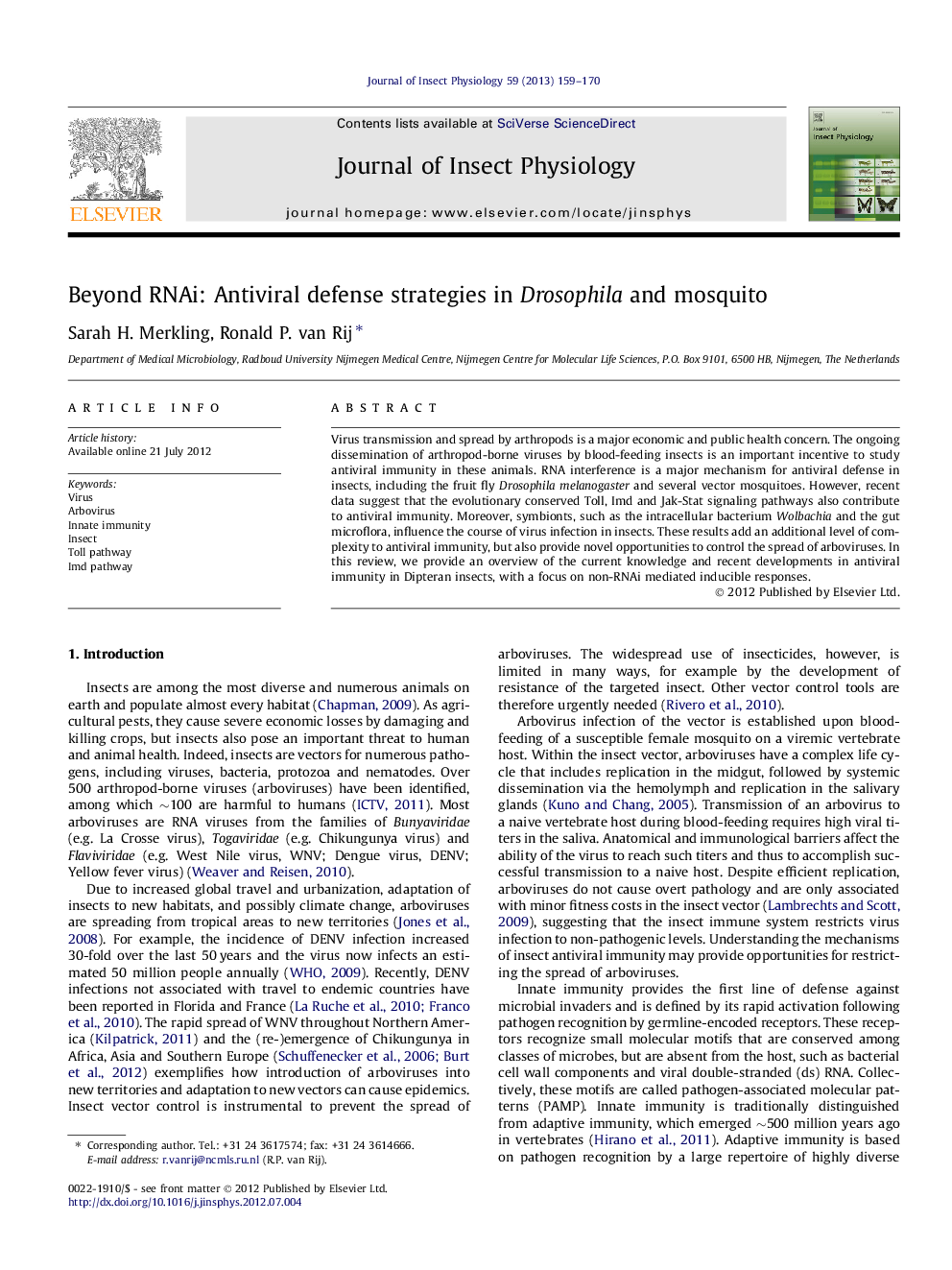| Article ID | Journal | Published Year | Pages | File Type |
|---|---|---|---|---|
| 2840552 | Journal of Insect Physiology | 2013 | 12 Pages |
Virus transmission and spread by arthropods is a major economic and public health concern. The ongoing dissemination of arthropod-borne viruses by blood-feeding insects is an important incentive to study antiviral immunity in these animals. RNA interference is a major mechanism for antiviral defense in insects, including the fruit fly Drosophila melanogaster and several vector mosquitoes. However, recent data suggest that the evolutionary conserved Toll, Imd and Jak-Stat signaling pathways also contribute to antiviral immunity. Moreover, symbionts, such as the intracellular bacterium Wolbachia and the gut microflora, influence the course of virus infection in insects. These results add an additional level of complexity to antiviral immunity, but also provide novel opportunities to control the spread of arboviruses. In this review, we provide an overview of the current knowledge and recent developments in antiviral immunity in Dipteran insects, with a focus on non-RNAi mediated inducible responses.
Graphical abstractFigure optionsDownload full-size imageDownload as PowerPoint slideHighlights► Toll and Imd pathways control immunity against bacteria and fungi. ► Non-RNAi based, inducible immune responses contribute to antiviral defense. ► Toll, Imd and Jak-Stat can control virus infection in Drosophila and mosquito. ► Symbionts and the gut microbiome affect the antiviral response in insects.
